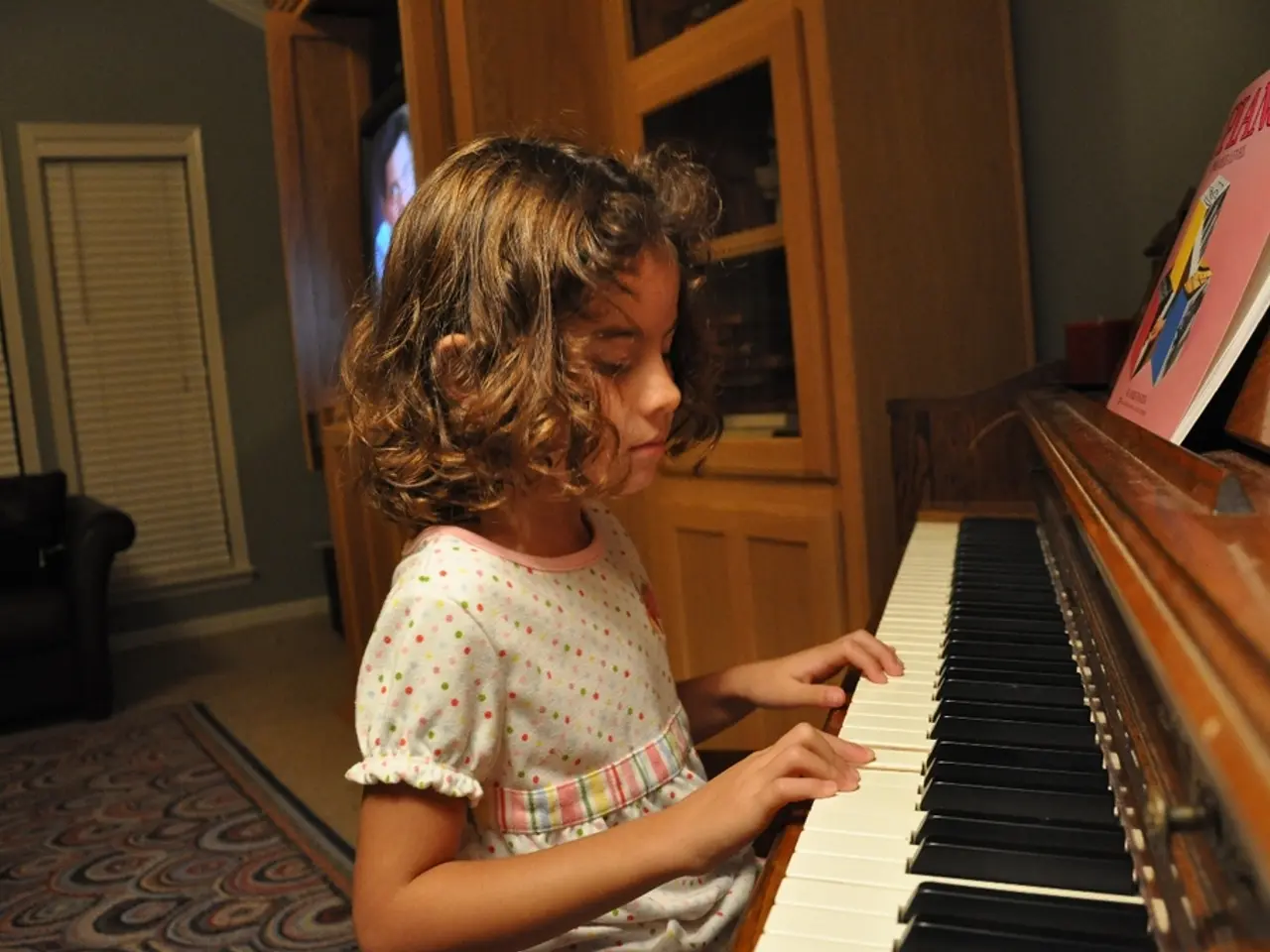Impact of Music in Identifying Childhood Emotional Neglect: Exploration of its Relevance
Emotional neglect can be a challenging issue to identify, but its signs are evident in low self-esteem, difficulty understanding and expressing emotions, relationship problems, anxiety and depression, and perfectionism and fear of failure. One approach that has shown promise in addressing this issue is music therapy.
Music therapy is a form of professional support that uses music to address emotional, cognitive, and social needs. It has been found to be highly effective in addressing emotional neglect in children, particularly in facilitating emotional expression, mood regulation, and building emotional resilience.
The effectiveness of music therapy for children experiencing emotional neglect can be attributed to several key points. Firstly, music acts as a conduit to express and regulate emotions, lowering anxiety, depression, and stress, which are common in emotionally neglected children. Secondly, music therapy is tailored to the child's psychological and developmental needs, improving coping strategies where traditional verbal therapies may be less effective.
Group music activities also help build social support and a sense of community, which is crucial for children with histories of neglect who may struggle with attachment and relational trust. Music therapy integrates well with trauma-informed and relational approaches, enhancing emotional connection and repairing attachment disruptions caused by neglect.
Research and clinical evidence affirm music therapy as a valuable and evidence-based intervention for improving emotional and psychological outcomes in children affected by emotional neglect. It supports recovery by promoting emotional healing, regulation, and social connectedness.
Awareness of emotional neglect and the consequences it involves is the first step towards eradicating this problem. Given the nature of the service it offers; music with its ability to help people cathartize, to practically help them get connected and heal from the emotional abuse is one of the best strategies of people to recover from the emotional neglect.
In addition to music therapy, therapy, particularly component-based psychotherapy and dialectical behavior therapy, can be effective in addressing the symptoms of childhood neglect and helping individuals develop healthier emotional responses.
With time, patience, and the right resources, individuals can build a brighter, more emotionally fulfilling future, transforming their past experiences into a source of strength and resilience. Family members and support groups play a critical role in this healing process, creating a safe space for individuals to share their experiences and feelings, fostering emotional connection and validation.
Jonice Webb, a psychologist who has investigated childhood emotional neglect, considers it a form of emotional abuse that negatively impacts a child's personality. Understanding the different ways in which childhood emotional neglect manifests is crucial for developing effective interventions. It is important to consider the various types of neglect and abuse that may co-occur with emotional neglect, such as physical abuse, sexual abuse, and physical neglect.
Music can also contribute to relaxation and stress management, decreasing anxiety levels, especially for those with backgrounds exposed to persistent stress or trauma. Music therapy can help individuals with childhood emotional neglect acquire better emotional perception and management. With music therapy, the neglected can recreate a new promising life, bridging the deep trench of neglect.
[1] Webb, J. (2010). Running on Empty: Overcome Your Childhood Emotional Neglect. New York: Penguin. [2] Hettema, J., Biegel, G., & Neff, K. (2005). Dialectical Behavior Therapy with Children and Adolescents: A Practical Guide for Parents, Teachers, and Therapists. Guilford Press. [4] Bruscia, K. (2006). Music Therapy: A Clinical Perspective. Oxford University Press.
- The healing potential of music extends beyond entertainment, as it plays a significant role in emotional recovery through techniques like music therapy, especially for those dealing with emotional neglect.
- Composer Beethoven's famous compositions, for instance, may have been instrumental in expressing and channeling his complex emotions, demonstrating the therapeutic power of music in the life of a composer.
- Researchers suggest that the integration of music therapy into health-and-wellness programs could potentially lead to improved mental health outcomes for adults who experienced emotional neglect in their childhoods.
- By understanding the role of music in mental health and relationships, we can reimagine piano lessons not just as a means of learning technique but also as a therapeutic tool for personal growth and emotional healing.




